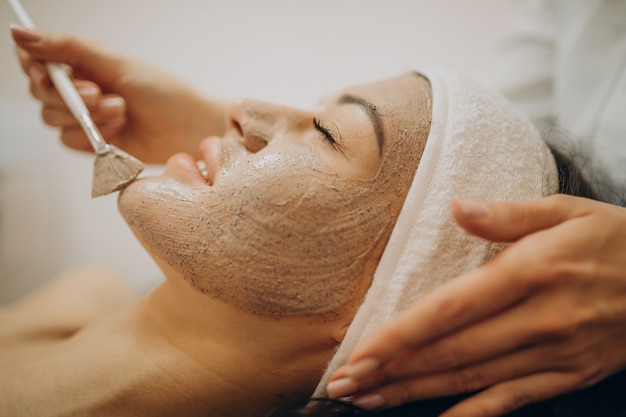“Always start your beauty ritual with clean skin. I personally first cleanse my skin with a cleanser, wash it off with a muslin cloth, and then massage the ‘Blue Beauty Drops’ onto the face. Let the oil sit and soak in for a minute – in the meantime, take a quick coffee break or brush your teeth – and then apply your moisturizer. If you prefer to use a serum and an oil, you should start with the serum first, leave it on for a moment and then apply the oil. In winter I recommend mixing your favorite oil or serum with the face cream – preferably on the hand and never in the cream jar. The moisturizer helps lock in the face oil molecules. ” read more info
If you often suffer from dry skin areas with tinted make-up products, you can also use facial oil here: Mix one or two drops of oil to your foundation, tinted daycare, or BB cream and apply the product as usual. The facial oil in make-up gives the skin an extra dose of moisture and, in combination with the foundation, forms a protective layer that conceals redness and impurities at the same time – and thus solves two skin problems at the same time.
Powerful ingredients for all skin types: 5 effective oils and serums
Most face oils and serums available in drugstores, perfumeries, and online beauty shops combine several active ingredients in one bottle. It is best to choose a product with a particularly effective main ingredient that suits your skin type or specific skin needs. These five oils and serums are just as suitable for beginners as they are for skincare professionals:
1. Rosehip oil
Oils from the fruits or seeds of the rosehip supply the skin with provitamin A, vitamin C, and beta-carotene, which protect our skin from free radicals and environmental influences. Thanks to its valuable ingredients, the orange-red colored oil is effective against skin blemishes and wrinkles. When used regularly, rosehip oil can even reduce scars and pigment spots.

Be careful when applying: The orange oil can leave stains on clothing and should therefore ideally be applied in the evening before going to bed. This is also advisable as the vitamin A contained in rose hips makes the skin more sensitive to light. During the day, you should then use a product with a sun protection factor when using the oil.
2. Jojoba oil
The oil from the seeds of the jojoba bush native to South America is a beautiful miracle weapon for every skin type. Provitamin A and vitamin E provide intensive care and stimulate cell renewal as well as the body’s collagen production. Therefore, the oil can be used as an anti-aging agent or on stretch marks and scarred areas of the skin. The gadoleic acid contained in jojoba oil has an anti-inflammatory effect and makes the skin more elastic. The oil has a natural sun protection factor of 3 and, thanks to its fine molecular structure, also cares for oily and combination skin without clogging the pores.
3. Hyaluronic Serum
A hyaluronic acid-based serum is perfect for anyone who wants to provide their skin with plenty of moisture. A hyaluronic acid serum is also ideal for beginners, as good products are quickly absorbed and do not leave a sticky film. The gel-like substance cushions dryness and age wrinkles moisturizes the skin and makes it more supple.
4. Vitamin C Serum
Vitamin C has also been one of the ingredients used in skincare for some years. The reason: The vital nutrient not only makes you more beautiful when applied from the inside but also the outside. Used in serums or creams, the vitamin helps to create a finer complexion, a firmer complexion, and reduces dark shadows under the eyes. A few drops of vitamin C serum in the morning give the skin a natural glow and make it look more vital and fresher.
5. Retinol Serum
Retinol, a special form of vitamin A, like vitamin C, is a powerful ingredient for cosmetic products: In a highly concentrated form, such as in serums, it helps to stimulate the body’s collagen production and to reduce wrinkles, acne scars, and pigment spots. Due to its anti-aging effects, it is particularly suitable for adult skin from 30 and can counteract the first signs of aging.
Conclusion
Vitamin A is very sensitive to light and should therefore be used in the evening. For daily use, you should use a high sun protection factor, as the retinol makes the skin even more sensitive to UV rays.



